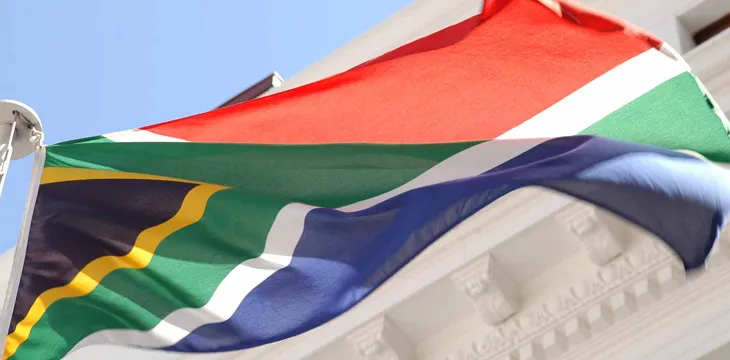|
Getting your Trinity Audio player ready...
|
Mobile apps are gradually dominating financial institutions in Africa. These fintech startups are now venturing into blockchain and cryptocurrency, bridging the gap between traditional economy and innovative technologies.
Like any other startup, these fintech also require a good strategy for acquiring sufficient seed capital, otherwise, they will not survive in the economic world.
Mazzum scales crypto heights after a recent positive uptrend
Mazzum, the third largest payment app in Ghana is planning to use cryptocurrency to take its operations to the next level.
The platform is a mobile money-based payment app that was launched in 2017 by two young Ghanians,Nii-Osae Osae-Dade and Kofi Genfi, who were only 18 and 19 years old at the time. The two decided to explore blockchain’s potential to help their over 27,000 users make faster and seamless peer-to-peer transactions globally.
Their decision to use blockchain technology resulted in the creation of MAZ tokens. Reportedly, after merging mobile money and cryptocurrency, the company was able to sell 60,000 MAZ tokens in only two years. Consequently, the number of clients also increased while its trading volumes rose to more than $1 million in transactions.
Mazzum has had its fair challenges to attaining their position in the market. One of its biggest challenges was getting investors to fund its operations. In addition, since it’s a mobile app, the company targeted the telecommunication companies in the country. However, the companies were not ready to invest in their app. Most investors were looking for experienced people and, according to Nii-Osae Osae-Dade, their young age put them at a disadvantage. He explained:
“In our initial efforts, it was hard approaching the telecommunications companies because we were 18 or 19-year-old guys. And so some of them didn’t take us seriously. But we kept pushing, and eventually, they trusted us and gave us access, and now we are major players in the market.”
The lack of funding did not hinder its growth. After adopting blockchain, the company was able to get additional capital through the sales of MAZ tokens. It was also able to get remittance from companies outside Ghana.
To scale higher in the blockchain world, Mazzum wants to use the MAZ token currency on its app. The MAZ token will be the key payment medium in the Mazzum ecosystem. It has gone through three pre-sales rounds. According to Said Osae-Dade, the Mazzum token is currently in the process of being listed.
Currently, the token has been purchased by many African countries, but also Brazil and Portugal.
Wala collapses due to lack of funds
Wala, a South African based fintech platform, was forced to shut down its operations after it failed to get the necessary funding to continue.
After its launch in 2015, the company grew to over 1 million users in over 100 countries. The company started well with offering transactional banking, loans, remittances, and insurance services. Two years later, the company made a decision to focus on cryptocurrency and launched a utility token named Dala.
This development made them win the Zambezi Prize Award and helped to secure an additional 150,000 users in Uganda.
According to Tricia Martinez, the CEO of Wala, Dala tokens were supposed to help the company in developing their operations, and creating a blockchain enabled financial platforms. For Wala to achieve this development, the company did their first crowdfunding in collaboration with Newton partners. During this funding round the company made $1.2 million. This was, however, was the turning point for Wala as things started going south.
One of the major challenges that led to the collapse of the company was its reward system. Martinez explained:
“Rewards attracted scammers or people who figured out how to take advantage of a rewards system. This led us to change our rewards model multiple times and have to remove users who were abusing our system.”
Additionally, poor infrastructure played a hand in its downfall. Their service providers had problems with maintaining the systems. The platform was constantly turned off due to poor internet connections. This made it difficult for Wala to run their day-to-day activities efficiently.
Wala community, especially their users started losing trust in the company. In attempts to restore their system, Wala ended up using many of its resources in building sustainable infrastructure. They decided to hold another fundraiser to get additional funding. However, things did not go as planned.
While speaking on the matter, Martinez said that most investors supposedly did not invest in the company because it was a crypto-backed startup based in Africa. He added:
“For eight months, I travelled across the globe, pitching investors in blockchain, fintech, impact, African-focused… I met and engaged with over 100 investors, and despite our early growth numbers, we couldn’t secure the necessary financial support we needed to continue growing and operating.”
Wala eventually began cutting back and laying off most of its team. It also had to turn off deposits it keeps afloat. On June 24, the company finally shut down its app since they could no longer manage it.

 06-30-2025
06-30-2025 





